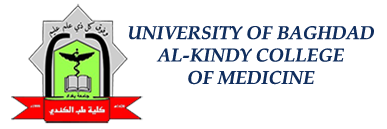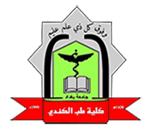Al-Kindy College of Medicine at the University of Baghdad successfully hosted its 5th International Scientific Conference, titled “Quality Education and Research Excellence – The Foundation for Accreditation and Sustainable Development,” from May 28–30, 2025, at the Babylon Hotel’s Gilgamesh Hall. Under the patronage of H.E. Dr. Naeem Al-Aboudi, Minister of Higher Education and Scientific Research, and the supervision of Prof. Dr. Baha’a Ensaf, President of the University of Baghdad, this event brought together over 300 medical and academic professionals from Iraq and abroad.
Day One Highlights: Inspiring Keynotes & High-Impact Sessions
Opening Ceremony: The conference began with the Iraqi national anthem, a Quranic recitation, and warm welcomes from Prof. Dr. Mohammed Shihab Al-Aidani, Dean of Al-Kindy College. He emphasized Al-Kindy’s commitment to global standards in medical education and research.
Session 1 – Medical Education for Excellence: Experts shared strategies to modernize curricula, integrate competency-based learning, and align accreditation with international benchmarks.
Session 2 – Innovation in Onychopathology: Renowned pathologists explored how nail pathology can serve as an early, non-invasive marker for cancer, showcasing case studies and digital imaging breakthroughs.
Session 3 – Advances in Women & Child Health: Obstetricians and pediatricians addressed maternal and neonatal health challenges, discussing perinatal care improvements and immunization strategies.
Attendees engaged in interactive Q&A panels, exchanging best practices for teaching methods and patient care protocols.
Day Two: Hands-On Workshops & Cutting-Edge Research
Advanced Surgical Skills: Surgeons demonstrated microsurgical techniques using 3D-printed models, emphasizing patient-safety checklists and simulation-based training.
Clinical Research & Biostatistics: Epidemiologists guided participants through study design, ethical approvals, and statistical analysis, ensuring research integrity and publication readiness.
Pharmacotherapy Innovations: Faculty and industry representatives showcased bioinformatics tools for drug discovery, personalized medicine approaches, and ongoing clinical trials.
Digital Pathology & Telemedicine: IT specialists and pathologists demonstrated cloud-based slide sharing, remote consultations, and AI-powered image analysis for underserved areas.
More than 30 research papers were presented, covering topics such as cardiovascular epidemiology, antimicrobial resistance, and mental health interventions in post-conflict settings.
In his closing address, Prof. Dr. Al-Aidani thanked organizers, presenters, and attendees for making the conference a dynamic platform for collaboration. The event concluded with five strategic recommendations to strengthen Iraq’s medical landscape:
Revamp Medical Curricula
Adopt competency-based learning and early clinical exposure.
Pursue national and international accreditation to maintain global standards.
Promote Research Excellence
Provide mentorship, grants, and protected time for faculty research.
Foster international partnerships for multicenter studies and data sharing.
Align Academic Policies with Societal Needs
Update academic regulations to address local health priorities and workforce demands.
Emphasize Public Health & Sustainable Development
Integrate preventive medicine, community engagement, and health promotion into all programs.
Build Academic Capacity & Equity
Invest in faculty development and leadership training.
Encourage women and underrepresented groups in academic leadership roles.
Closing Ceremony & Future Outlook
Certificates and honorary shields were presented to keynote speakers, workshop leaders, young researchers, and organizing committees—recognizing their dedication to advancing medical education and research. Reflecting on this successful gathering, Al-Kindy College of Medicine reaffirms its mission: to empower the next generation of healthcare leaders in Iraq and the region.












































